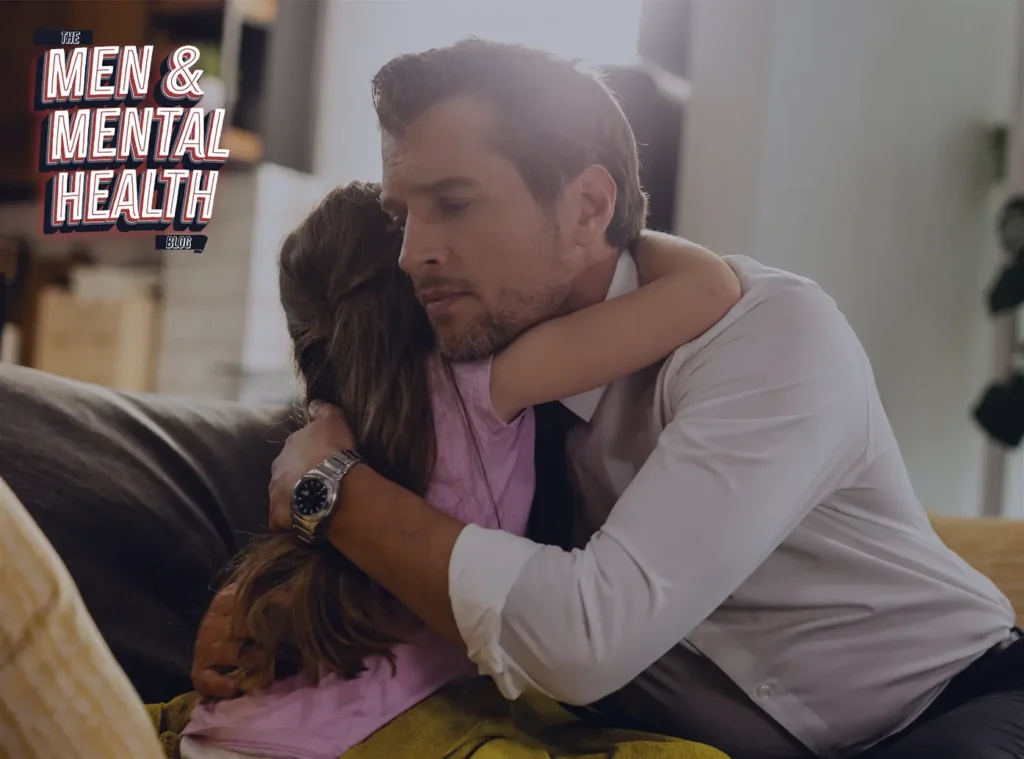The Men and Mental Health Blog features some curated content from online resources. This post originally appeared on the Days of a Domestic Dad website and was not written by Good Dads staff.
Mental health problems are incredibly common, affecting one in four people at some point in their lives. The good news is that these problems are treatable, and most people who get help recover completely. The bad news is that many people don’t seek help, often because they’re embarrassed or ashamed. They may also feel like they’re the only ones struggling, or that there’s something wrong with them.
As a father, you play a vital role in your family. From providing financial support to offering emotional stability, every dad is an essential piece of the puzzle. And while you can’t fix mental health problems, you can provide support and understanding during your family member’s journey to recovery. Here are six ways you can help:
Encourage Them to Seek Help Early
If you notice your family member is displaying early signs of mental illness, encourage them to seek help as soon as possible. The sooner they get help, the better their chances of recovery. There are many effective treatments available, but they require a professional diagnosis. A mental health professional can assess your family member’s symptoms and make treatment recommendations. And even if turns out your family member doesn’t have a mental illness, they may benefit from therapy. Talking to a therapist can help them manage stress, deal with difficult life events, and develop healthy coping mechanisms.
Help Them Find the Best Treatment
There are many different types of mental health treatment, so it’s important to find the right one for your family member. If they’re open to it, have a conversation about the different options and help them choose the best option for their needs. Depending on the type of mental illness, you may choose between facility inpatient and outpatient services. In general, inpatient service requires that the person stays at a hospital or other for some time, and is most suitable for people who are in danger of harming themselves or others. On the other hand, outpatient services allow people to live at home and come in for treatment as needed. These services are typically less expensive and disruptive, but they may not be the best option for people who are in crisis.
Educate Yourself About Mental Health
The first step is to educate yourself about mental health. Learn about the different types of mental illness, their symptoms, and the available treatments. This will help you better understand what your family member is going through and how you can best support them. The best way to find accurate information is to talk to a mental health professional. They can answer your questions and provide relevant resources you can use to further your education.
However, It’s important to remember that there’s no one-size-fits-all approach to recovery. What works for one person may not work for another.
Be Open and Supportive
Being open and supportive means creating an environment in which your family member feels comfortable talking about their mental health. This can be a challenge, especially if you’re not used to talking about emotions. However, it’s important to remember that your support is vital to your family member’s recovery. Show them that you care by listening without judgment, offering words of encouragement, and showing patience. And even if you don’t know what to say, simply let them know that you’re there for them. It will make a world of difference.
Help Them Stick to Their Treatment Plan
Recovery from a mental health problem is often a long and difficult journey. There will be ups and downs, and there’s no shame in seeking help along the way. Once your family member has started treatment, you can play an important role in helping them stick to their plan. This may include attending therapy appointments with them, helping them take medication as prescribed, or simply being there for them when they need someone to talk to. Regardless of how you choose to help, remember that your support will be vital to their recovery.
Take Care of Yourself
It’s important to remember that taking care of a family member with a mental health problem can be difficult and stressful. It’s okay to seek out support for yourself. It’s essential. There are many resources available to caregivers, so take advantage of them. Consider joining a support group or seeing a therapist yourself. And don’t forget to take time for yourself and do things you enjoy outside of caregiving. It will make you a better caregiver and help you avoid burnout.
Even though helping a family member fight mental health problems can be a real challenge, with the right knowledge and support, it’s possible. These six tips will help you get started on the journey to recovery. Just remember that every family is different. What works for one person may not work for another. The most important thing you can do is be open and supportive. Show your family member that you care and be there for them through the ups and downs. It will make a world of difference.
Photo credit: Image by Drazen Zigic on Freepik




